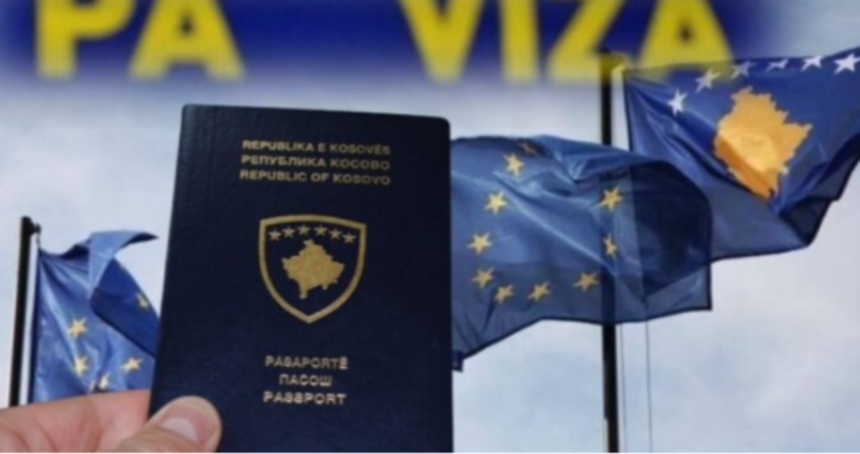This year, the European Union (EU) is expected to tighten its visa suspension mechanism, making it easier for Brussels to remove visa-free travel privileges for citizens of 61 countries, including all Western Balkan nations aspiring to join the EU, as well as Georgia, Moldova, and Ukraine.
The proposal to expand the reasons for visa suspension was initiated by the European Commission back in 2023, and the EU Council—which represents the 27 member states—approved its stance on the issue a year ago. However, due to the European parliamentary elections in June 2024 and heavy legislative workload, the European Parliament has only recently been mandated to negotiate.
Last week, the first dialogue between the three EU institutions took place regarding the proposed legislation, with the goal of reaching an agreement during the Polish Presidency of the EU Council, which lasts until the end of June. If everything goes smoothly, the new law is expected to come into effect in the early fall.
Why Is This Happening Now?
At its core, the EU is becoming much stricter regarding visa liberalization, reflecting a broader shift. Firstly, it aims to combat all forms of illegal migration to the EU. Secondly, it seeks to potentially use the visa regime as a political tool to exert pressure on third countries.
Visa liberalization—which, in this case, includes all EU member states except Ireland, as well as Iceland, Liechtenstein, Norway, and Switzerland—has long been one of Brussels’ most important political tools. It allows nationals of third countries to visit the EU for up to 90 days within a 180-day period without needing a visa. Kosovo was included in this list at the beginning of 2024, and Georgia and Ukraine were included in 2017, moves that were widely welcomed in these countries.
The threat to withdraw this privilege can therefore be seen as a real punitive measure.
What Are the Expected Changes?
In general terms, there are four key areas of change as Brussels seeks to make the visa suspension mechanism a more reliable punishment tool. Firstly, visa liberalization may be suspended if there is a perception of non-compliance between the EU’s visa policy and the visa-free third country.
This was the case in 2022 when Serbia allowed visa-free travel for nationals from countries like Burundi, India, and Cuba. Brussels suggested that many of these individuals were using Serbia as a “back door” to the EU. Following pressure from the European Commission, Belgrade withdrew some of these agreements. However, under the proposed legislation, such actions could be punished more easily.
Hybrid Threats
Another reason for visa suspension would be hybrid threats. While still theoretical, this provision is inspired by countries like Russia and Belarus, which the EU has accused of transporting migrants from Africa and Asia to the EU’s borders, such as those of Poland and Lithuania.
Currently, visa facilitation agreements with Moscow and Minsk have been suspended for several years due to Russia’s invasion of Ukraine and Belarus’s oppression of opposition under its authoritarian leader Alexander Lukashenko. However, if another visa-free country follows a similar tactic, the new mechanism could be activated in response.
Other Areas of Concern
Thirdly, visa liberalization could be suspended if a country operates a citizenship-by-investment scheme, allowing individuals to buy citizenship without any real ties to the country.
Lastly, and perhaps most interestingly, the mechanism could be activated in cases of serious violations of human rights and abuses or serious breaches of international law, including human rights violations and non-compliance with international court rulings.
The Democracy Criterion
When asked, EU officials have long maintained that there is a “democracy criterion” for visa liberalization, though it has never been clearly explained what exactly it entails.
An interesting and new aspect is that the activation of the mechanism in this case would be under the exclusive competence of the European Commission, after consultations with EU member states, as it relates to the bloc’s foreign relations.
However, in the end, it will be the member states, through a qualified majority, that will decide on the suspension of visa liberalization with a third country. As EU officials describe it, this remains “the core option when all other options have been exhausted,” as the bloc is generally cautious about penalizing an entire population instead of its government.
That is why earlier this year, the EU chose to suspend visa liberalization only for Georgian diplomatic passport holders, following democratic setbacks in the Caucasian country. However, the option to target the entire population remains on the table—and with the possible expansion of the suspension mechanism, the EU is clearly sharpening its tools.







